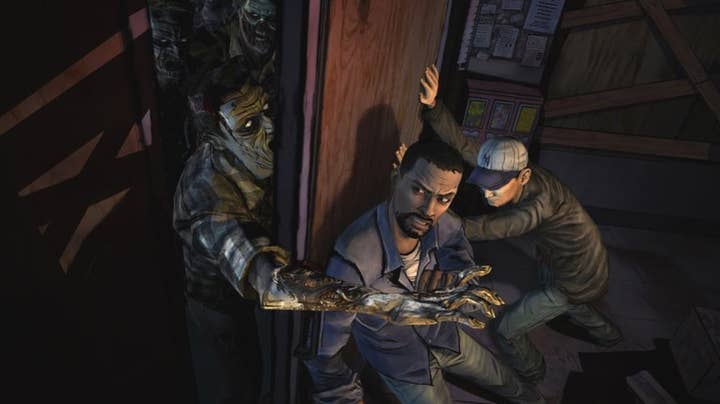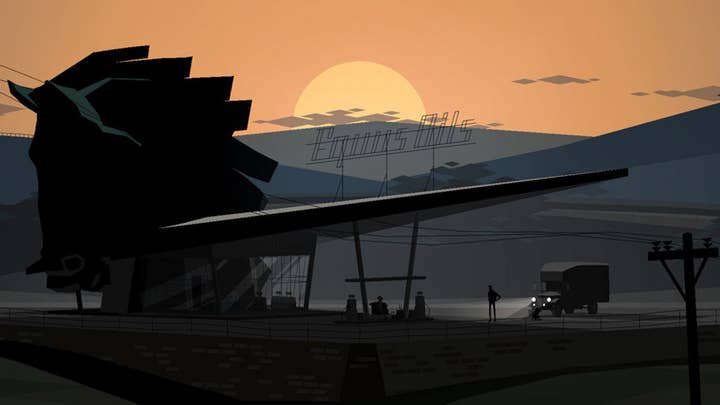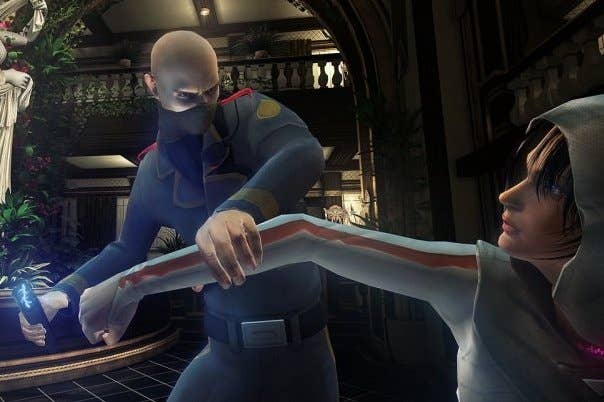Camouflaj: Fighting the good fight with Republique
AAA, episodic, premium-priced content for mobile - Ryan Payton on a project of uncommon ambition
Either Ryan Payton has unusual powers of observation, or I'm in serious professional trouble. This is the second time I've talked to the soft-spoken founder of Camouflaj, the Seattle studio responsible for the episodic mobile game Republique, but on this occasion he noticed something different about the experience. When the conversation eventually reached the subject of free-to-play, Payton assures me that something strange happened. My eyes glazed ever so slightly. My voice flattened just a little bit. Funnily enough, I'd noticed the very same thing about him.
For a journalist with a specific focus on business models this is an unwelcome development, but an undertone of weariness is hardly surprising. The dominance of free-to-play has been the prevailing narrative in mobile development for what seems like an eternity; the subject of endless online debate and more conference sessions than I care to remember, largely turning over the same arguments and defences and pluses and minuses as four years ago. Fatigue is bound to set in eventually, and from Payton's point of view it's a missed opportunity. Mobile development has many unanswered questions, and yet we rarely ask about anything other than business models.
"We're fighting the good fight with premium and treating the customer with respect. Meanwhile, our little go-kart is being passed by Ferraris"
In a sense, that's what Camouflaj has been attempting to do, pushing beyond what might be considered established or 'safe' on mobile platforms, and in several different directions at once. Republique is the kind of game associated with AAA, with consoles, with input devices featuring 16 buttons. It has a female protagonist, and depth and detail in its topical story. It is released in episodic chunks, and, yes, each of those costs money. Camouflaj is now hard at work on the third episode, and, for the most part, Payton seems pleased with the public response.
"Yes and no," he says. "We're successful, but we're not wildly successful. We're fighting the good fight with premium and treating the customer with respect. Meanwhile, our little go-kart is being passed by Ferraris."
There is no trace of enmity in in Payton's voice. It would be unwise for a studio like Camouflaj to judge its work relative to Clash of Clans or Puzzle & Dragons, but Payton is clearly happy to - as ustwo's Neil McFarland put it - leave money on the table in order to stay true to the team's vision for Republique. Without a premium price, some form of creative compromise would have been inevitable - not to mention Payton's own nagging sense of impropriety.
"I really, truly don't think anything I or the team will make in the future is ever going to be worth $15,000 for one player to put into," he says, grimacing. "It's just silly. No disrespect to anyone making those games, but if someone is putting that much into one game - and they do - what they're getting out is, I'm sorry, not worth that much. Not in any world."

Payton puts great emphasis on value, reiterating the need to justify Republique's price with content of the highest quality several times during our conversation. That was a decisive factor in choosing an episodic structure for the game. "Episodic was the right choice for us," Payton says. "From a development perspective, from a community perspective, and just as a startup - for a lot of reasons
But episodic was a risk. A calculated one, sure, and necessary if Republique was to reach its audience as Payton intended, but it's worth noting that the first episode of Telltale's The Walking Dead hadn't even been released when Camouflaj launched its Kickstarter campaign. As a format for the production and consumption of video games, episodic is far from established even now, but in April 2012 it was essentially a curiosity. Here, again, Republique's experimental nature has been a qualified success.
"I knew that episode one would be big, and that episode two would be better, but I actually didn't expect our audience to grow by a significant margin between them," Payton says. "I had pitched that theory to a bunch of people who've worked in episodic, and it's absolutely true.
"We've found that a lot of people who finished Episode One and purchased Episode Two still haven't played Episode Two"
"In fact, we've found that a lot of people who finished Episode One and purchased Episode Two still haven't played Episode Two. I have a theory about that. The way I approach episodic games now, I played the first episode of The Wolf Among Us and loved it, so I bought the season pass and now I'm waiting for all five episodes. Like binge watching a TV series. And also because I have a terrible memory. If I play an episode every month or two I can't remember what happened in the previous ones."
And the inscrutable buying habits don't stop there. Payton knew that it would be necessary to sell a Season Pass, but it was clear that a bulk discount is a relatively weak incentive for gamers existing in a landscape of abundant choice. So, when someone buys the Season Pass for Republique, they not only get every episode of the game, but they also receive developer commentaries, making of videos, and early access to a likely Season 2. It's persuasive evidence of that commitment to value Payton so frequently mentions, and it seems to have worked, if not quite in the way intended.
"The Season Pass has done way above expectations, and it's [proportionally] double figures, which, for any in-app purchase, you rack up as a major success. And - this is so strange - more people have purchased the Season Pass than have finished episode one. That tells me a number of different things. One of them is that they played enough to say they like it, and they'll wait for more to come out before they carry on playing."
The wait is another of those unanswered questions, and one area that Payton is willing to concede that Camouflaj fell slightly afoul of its relative inexperience with episodic production. The fear that the audience would lose interest if the gap between episodes was too long has been ever present, but the drive to augment and refine the experience has proved difficult to resist. Payton has issued an apology or three to the game's Kickstarter backers already, but in trying to make each episode a distinct experience - with new locations and features - it has been difficult to keep everyone satisfied with the rate of production. For the most part, it's just a symptom of the roadmap Camouflaj laid out at the start proving a little more taxing than anticipated, but Payton readily admits to a little after-the-fact tinkering - fixing old mistakes, and retrofitting new ideas into older episodes.

"Each new episode becomes a chance to fix things I didn't like about the previous ones, which drives our producers nuts. They're looking forward and I keep on looking back," he says.
"But it's always been about the end product, and part of the reason why we've taken such a long time to make each episode... This is no offence to the Telltale guys - who I'm always gushing over and I'm jealous of all their achievements - but I noticed that they don't tinker with each episode in the way that we do. And that's because I'm thinking about the final vision, the whole five episodes."
"It's like making a little sequel every four months, which is super ambitious.
"Each episode becomes a chance to fix things I didn't like about the previous ones, which drives our producers nuts. They're looking forward and I keep on looking back"
Ambitious, certainly, and the onus is now on Payton and his team to prove that it wasn't also foolhardy. The Walking Dead had the good fortune of a hugely popular namesake TV series, which kept the brand in the public eye even as the episode release dates slipped and stretched. Camouflaj has no such luxury. Payton believes that the episodic format is an even better fit for mobile than it is for console or PC - particularly for aspirant premium fare like Republique - but the challenge is to keep people talking, and that's no small feat.
"We look very closely at Telltale," he says, "and I've noticed that the span between episodes is getting shorter and shorter. I think that's really a positive thing, because it keeps that momentum and lets the player know that, if they buy a season pass, they're going to see some value from that pretty soon rather than down the road. I do feel the pressure of getting an episode out as soon as possible.
"On the other hand, I look at our friends at Cardboard Computer, who make Kentucky Route Zero, and I see the amount of time they take on each episode, and I start to feel a little better. The thing with Cardboard Computer is they won't release until its ready, and you know it's going to be really good every single time. So I see Republique as somewhere in the middle right now, but in the long-term I know that, if we did another episodic game, we would plan for quicker releases."
In that sense, Camouflaj may have made a rod for its own back. Kentucky Route Zero is so singular and idiosyncratic that its loyal audience may well be tolerant of a 'when it's done, it's done' approach. But Republique's stated goal was to distill a AAA console experience and make it work on a touchscreen device. As anyone who's spent much time playing on Xbox Live will attest, that sort of gamer isn't necessarily known for patience and understanding. Payton nods in recognition, then shrugs his shoulders.
"Maybe a little bit," he says, smiling. "But if our biggest problem is people saying gimme,gimme, gimme, faster, faster, faster, that's a really good problem to have."

